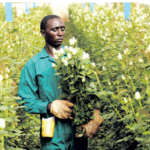South African billionaire Johann Rupert, the country’s wealthiest man, has officially severed his family’s long-standing ties with the tobacco industry.
Through Reinet Investments, Rupert finalized the sale of 43.3 million shares in British American Tobacco (BAT) at £28.20 per share, generating £1.22 billion (~R28.3 billion).
The transaction, conducted via an accelerated bookbuild process, is set to complete on January 16, 2025.
The Rupert family’s connection to tobacco dates back to the 1940s when Johann’s father, Anton Rupert, founded Voorbrand Tobacco Company, which later evolved into Rembrandt. By the 1990s, the family consolidated its interests under Rothmans International, eventually merging with BAT. In 2008, Johann Rupert spun off tobacco assets into Reinet, signaling the family’s diversification into luxury goods and financial services.
- Advertisement -
“This marks the end of an era. Our family’s legacy in tobacco is significant, but it’s time to align with new opportunities and values,” Rupert stated.
At its last reporting date in September 2024, BAT shares represented 24% of Reinet’s net asset value. The sale follows earlier divestments in November and December, where Reinet sold 5 million BAT shares, raising £148.5 million (~R3.43 billion). These transactions allowed Reinet to prepay outstanding loans and release 11.1 million BAT shares previously pledged as security.
Reinet plans to reinvest the proceeds into diverse ventures. Analysts, like Johannesburg-based economist Mpho Nkosi, view this move as part of a global trend to shift away from industries facing regulatory and ethical pressures.
The sale also marks a broader shift in the tobacco industry. BAT, known for brands like Lucky Strike and Vuse, is pivoting towards smoke-less alternatives like nicotine pouches and heated tobacco.
Johann Rupert, whose wealth stands at R213 billion, remains at the forefront of South African business, with major stakes in Richemont, Remgro, and Reinet. As Reinet’s quarterly statement approaches, this divestment signals a pivotal moment in both the Rupert family’s history and South Africa’s corporate landscape.










